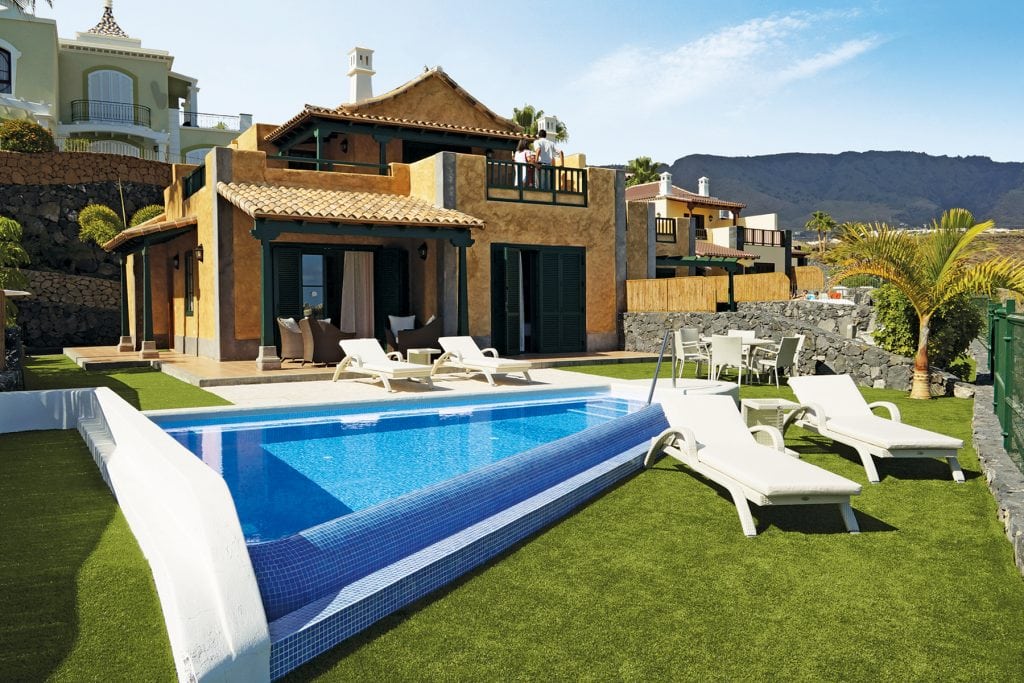Skift Take
With the likes of Airbnb playing up the sheer number of properties available, it makes sense for Wyndham to make a point of some of the advantages you get when booking direct with a company.
The vacation rental market has undergone a seismic realignment since the twin juggernauts of HomeAway and Airbnb bounded onto the scene in the mid 2000s.
Both companies — operating with slightly different models — helped to shift consumer expectations when it came to taking a holiday in someone else’s house.
So what do you do if you are a legacy business working in that environment today?
According to Gail Mandel, CEO of Wyndham Vacation Rentals, the key is educating the public on the biggest differences among companies operating in the space.
“I think that the biggest challenges that we’ve seen is that [there are] some of the newer models that are still catching up from a regulatory standpoint, so there’s a little bit of confusion by the consumers about professionally managed versus the listings model,” she told Skift.
If you type in “Airbnb horror stories” into Google, you get plenty of hits. That’s the tradeoff for having 2 million listings and 60 million customers: sometimes things are going to go wrong.
Wyndham, meanwhile, is a fraction of the size with more than 100,000 properties across the globe. It takes roughly 25 percent in commission compared with Airbnb’s 3 percent. That’s a big difference. For holidaymakers, it is harder to compare prices but the Airbnb model is certainly more flexible with consumers paying per night rather than for a seven or 14-day stay. The trade off for this is booking with a company who you can complain to if things go wrong.
“For us, it’s about giving the consumer the opportunity to vacation with confidence because we check all of the boxes and we’re there with our quality standards being backed by a trusted hospitality company as well as the fact that we have boots on the ground in these markets,” Mandel said.
“We’re there 24/7. If the air conditioning breaks in the middle of a hot summer night, we have people there who can come and make sure that the consumer is taken care of, where when you’re dealing with some of the newer models, the homeowner may live thousands of miles away, and if you’re dealing with the homeowner, you just don’t get that service.
“What we do is we provide the home away from home experience but with the backing of the trusted hospitality company so they can vacation with confidence.”
Expansion strategy
Although it will likely never be able to get anywhere near the size of Airbnb (or HomeAway), Wyndham has managed to scale up thanks to regular small acquisitions in different markets. In July its Dutch subsidiary Landal GreenParks expanded into Scandinavia with the purchase of Dayz Resorts and earlier this month it bought Spain-based Friendly Rentals. The latter deal will see the company expand its presence in a market where it can challenge Airbnb.
“We’re excited about that because that’s an extension of our product offering. We had a few hundred urban rentals in our portfolio, but with our goal to be able to deliver the right product to the consumer at the right time for their needs and be able to continue to provide those unique vacation experiences, we wanted to increase the size of our urban rental portfolio,” Mandel said.
Global vision
Wyndham Worldwide was created from the break-up of Cendant in 2006. Under its previous guise, the company first dipped its toe in the water of the vacation rentals sector in 2001.
Within the wider Wyndham family vacation rentals represent a small proportion of the overall business.
According to Wyndham Worldwide’s second-quarter results, revenue in the segment increased from $200 million to $202 million (14% of the total).
Wyndham is perhaps best known as a hotels business but surprisingly its biggest money generator — at least in Q2 — was its timeshare ownership division ($705 million).
Nevertheless, the vacation rentals market is still huge and worth an estimated $100 billion worldwide. Given that, Mandel is looking at further growth opportunities. She is targeting the USA, Caribbean and Latin America but is also looking further afield in Japan and China.
“I don’t think the regulatory environment has gotten there yet in Japan. I would like that to be an opportunity for us, just from everything, all the research I’ve done, it hasn’t gotten to where we need it to get to. I think that China would be sooner than Japan, if I had to rank order them,” she said.
“I would like the opportunity in Japan, I just can’t force the regulators.”
Using your rivals
Even though Airbnb and HomeAway might be competitors, Wyndham is happy to use them as a way of boosting the visibility of properties. Although at this stage it is still only for a small percentage of its inventory.
“What we do is we decide … The homeowners entrust us with their asset, so that’s a big step. We decide what is the most productive and efficient way to market their home. In some cases, you will find some of our properties on HomeAway or on Airbnb because we’re using them as distribution channels so that’s the way that they’ll end up there,” Mandel said.
Wyndham has also acted as an investor. In 2015 it backed UK-based home exchange company Love Home Swap to the reported tune of £7.5 million.
And like Airbnb, Wyndham wants to find ways it can add value for people during their stay.
“We’re going to continue to look beyond the accommodations. That’s some of the areas that we’ve started to expand. For example, some of our locations have partnered with the app Glad to Have You so that when the customer arrives, they understand what are the activities in the local area. We’ve recently launched a website called VacationDifferently.com, which we’re really excited about which has all this content, once again, where consumers can go and can learn about what to do locally.”
Dwell Newsletter
Get breaking news, analysis and data from the week’s most important stories about short-term rentals, vacation rentals, housing, and real estate.
Have a confidential tip for Skift? Get in touch
Tags: airbnb, homeway, vacation rentals, wyndham
Photo credit: A property in the Wyndham Vacation Rentals portfolio. The company is competing in the sphere with the likes of Airbnb and HomeAway. Wyndham Vacation Rentals

